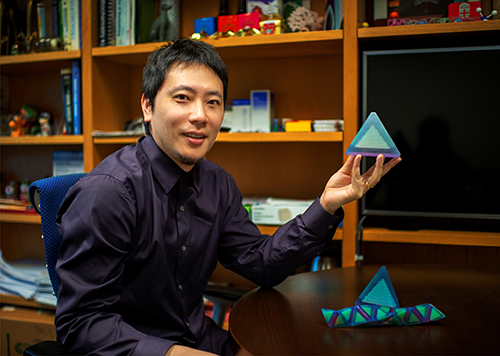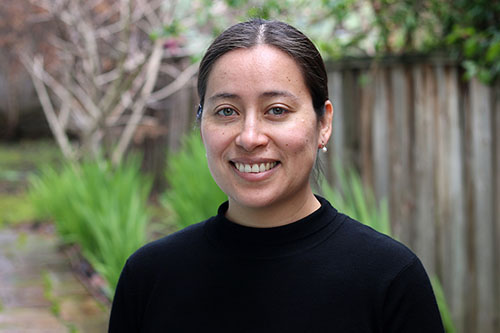PROVIDENCE, R.I. [Brown University] — Two Brown University assistant professors earned research fellowships from the Alfred P. Sloan Foundation for 2020.
Ou Chen, an assistant professor of chemistry, and Emilia Huerta-Sanchez, an assistant professor of ecology and evolutionary biology, were among 126 researchers in the U.S. and Canada to receive fellowships, the foundation announced this month.
The foundation awards Sloan Research Fellowships annually to early-career scientists and scholars identified as rising stars in the next generation of scientific leaders. Each fellow will receive $75,000 over two years to further their research.
Research in Ou Chen's lab focuses on developing new materials ranging from the nano to macro scales and elucidating their chemical and physical properties. A particular area of interest is in quantum dots, nanoscale semiconductor crystals with remarkable optical properties. Chen is working to develop new types of quantum dots with finely tuned properties appropriate for solar energy harvesting, medical imaging and other applications.
He's also investigating how to assemble macroscale superstructures using nanoscale building blocks. These kinds of superstructures offer a promising new way to bring the useful properties of nanoparticles to macroscale materials and devices. In research reported recently in two of the world’s highest-impact journals, Nature and Science, Chen used pyramid-shaped quantum dots to create what may be the most complex superstructure ever built using nanoparticle building blocks.
“In the new era of nano-research, how to bring nanoscopic properties to macroscale materials and devices becomes a grand challenge and a rewarding topic,” Chen said. “As a Sloan Fellow, I will devote myself to exploring novel strategies for the synthesis and assembly of nanoscale particles into large scale materials with the goal of fully realizing their application potentials.”
Emilia Huerta-Sanchez’s research focuses on understanding how events in the past, such as the mixing of Neanderthals and modern humans, have affected the shaping of patterns in human genetic variation. Using an interdisciplinary approach, Huerta-Sanchez employs data analysis and mathematical and statistical modeling to examine the consequences of inheriting Neanderthal genetic variants.
Surprised by how little she knew of female scientists and inspired by the 2016 film “Hidden Figures,” Huerta-Sanchez has also pursued research that highlights the significant — and often unrecognized — contributions women have made to population genetics as programmers. Her findings were published in the February 2019 issue of the journal Genetics and attracted widespread attention. She hopes to continue to make visible the vast scientific accomplishments of women.
The Sloan Fellowship allows Huerta-Sanchez a new level of flexibility and freedom she’s grateful for, she said.
“This give me the opportunity to be more ambitious and pursue projects that may be considered risky,” she said. “It feels nice when my work is recognized as being deserving of this fellowship. I’m honored.”